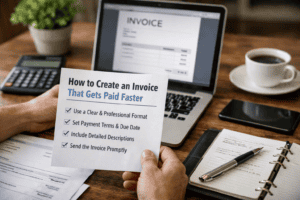Table of Contents

Establishing a limited company is one of the best and most tax-efficient ways to get paid for your work.
In a limited company set up, you get to establish your name, you will own everything you do, you’ll be running your business in the most tax-efficient way, and pitch for a business that you wouldn’t be able to do if you were a sole trader.
1. Choose Which Type of Limited Company You Should Set Up
Once you have decided to set up a limited company, you have to choose which type of company you want to form. The two primary options are as follows:
- Private Limited Companies (LTD)
- Public Limited Companies (PLCs)
Many freelancers, contractors, start-ups and small companies may opt for a private limited company, as PLCs will have a minimum share capital of £ 50,000, at least two shareholders, two directors and a trained corporate secretary.
2. Pick Your Name
This bit is the fun and most frustrating part of the whole process for most new limited companies. Like a website address, your company name has to be unique. You may differ in a few ways to guarantee a specific name – for example, a limited company name may use either “Limited” or “Ltd” (i.e. “Crunch Limited” or “Crunch Ltd”). You can find available company names using our company name checker Crunch Formations, but with more than 1,500 companies created every day, the selection of your chosen name could be limited.
3. Forming A Limited Company
If step two was a fun and frustrating component, then this is the tricky and bureaucratic component of it – or at least it’s seen to be. Honestly, it’s pretty easy if you are organised, though. With Crunch, you can go online and set up your limited company in about ten minutes, all at the cost of a takeaway meal.
All you need to do is provide some personal information to help Companies House identify you as a director of the company, and you are good to go. They will often have your limited company formed in a matter of hours.
4. Complete The Incorporation Process
Companies House is responsible for the registration of limited companies in the United Kingdom. Specific information is given on their website. The following records must be submitted and returned to Companies House in order to complete the process of incorporation. A client training director or accountant will also execute these on a behalf:
Memorandum of Association – the name of a limited company, location, type of business
Form 10 – Director’s name, address and registered limited company address. (This does not have to be where you work, but it will be where the legal correspondence from the HMRC and the Companies House is sent)
Form 12 – states that the limited company complies with the terms and conditions of the Companies Act.
Articles of association – outlines the powers of the director, the rights of shareholders, etc. (this is often provided by the formation company of a limited company).
So this is how to become a limited company! What the devil do you need to do next?
Well, there are a few more bits of admin that you should take care of, and there are those troublesome reporting and filing responsibilities that you need to stay on top of.
Incorporate Your Company Online In The UK
These days it’s pretty easy to start a business in the UK. It’s probably one of the easiest places on earth to open a business, and most people don’t know, but the company can be set up in a matter of hours. This means that once you have registered in the UK, you can start trading almost immediately under your newly established business.
The websites you can incorporate your company online include:
- 99p Company Formations – https://www.99pcompanyformations.co.uk/
- Companies Made Simple – https://www.companiesmadesimple.com/
- 1st Formations – https://www.1stformations.co.uk/
How To Set Up A Limited Company In The UK Through An Accountant
Whether you sign up for their accountancy service, an accountant will be able to form a corporation for a fee on your behalf, or free of charge. Your proposed accountant will either incorporate the costs of creating the business into its recurring monthly fee or charge the service as a one-off. That can vary greatly from £ 50 to over £200 between firms. So, why do you pay for that service?
The answer is that in return for this initial setup fee, your accountant will do much more than simply setting up your company via Companies House. You will need to register your new business for corporate tax, Value Added Tax, and appoint your accountant to deal with HMRC on your behalf, in addition to the incorporation itself.
Your accountant would also need to instruct you on how to organise the shareholder equity, appoint directors (and probably a company secretary) and assist you in setting up shareholdings in the most tax-efficient way possible.
Last but not least, certain contractors may either have a live limited company or have created one prior to naming an accountant. Some accountants choose to charge a one-off fee for setting up a new company, as having this service included in the regular monthly charges could penalise those contractors who already have a business.
We hope you found this guide on how to set up a limited company in the UK useful. Check out our other blogs for help with all of your small business needs and to answer some of your underlying questions!









